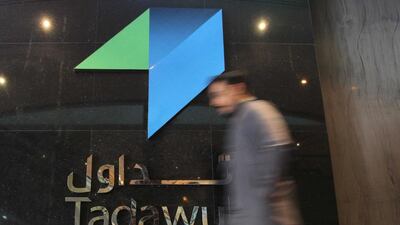Oil dipping below $50 a barrel is unlikely to mute the capital inflows expected from Saudi Arabia’s inclusion in the MSCI emerging markets index because the kingdom has sufficient buffers to support the market, according to a director from Franklin Templeton Investments.
“The short-term correlation between oil prices and market performance is that flows rise considerably with higher oil prices because markets are driven by investor sentiment and tend to react negatively to prices dropping,” said Salah Shamma, head of Mena Investment at Franklin Templeton Emerging Markets Equity, during an event on Thursday.
“However, the long-term correlations, based on the fundamentals of the market, are operating on a different scale and are not so evident, due to government buffers,” he told the Wealth Arabia Summit in Dubai.
The government in Saudi Arabia presents a buffer between oil prices and between the market. “Even if oil prices drop, the government can continue to support the market and can continue to realise higher corporate earnings which explains the lower correlation,” he explained.
Global oil prices have plummeted 20 per cent in the past three months to below $50 per barrel on Thursday from $80, following production amendments instigated by Opec. It comes after prices rose substantially from March following a three-year oil price slump, helping to boost global economic growth and buoy investor sentiment.
The recent drop is “one of the key concerns investors may have right now”, given that it comes so soon after index provider MSCI awarded the world’s biggest oil exporter emerging market status on June 21, according to Mr Shamma.
The landmark inclusion paves the way for an estimated $40 billion of additional flows to the kingdom’s $500 billion-plus stock market – a five-fold increase from the current $8bn, analysts including Franklin Templeton said at the time. It gives the kingdom’s stocks a representative weighting of around 2.6 per cent of the index, with 32 securities, according to MSCI.
___________________
Read more:
Oil price drops to $65 as supply-and-demand concerns flare
Saudi Arabia wins MSCI emerging market status
Saudi MSCI inclusion will raise foreign stock ownership and boost inflows
___________________
The decision followed a similar move by FTSE Russell in March and was a second achievement for Saudi Arabia, which has implemented a series of reforms to develop capital markets in line with its Vision 2030 economic diversification strategy.
The decision will "ultimately help transform the kingdom into one of the largest and most attractive emerging markets in the world," Mr Shamma said in a statement to The National shortly before MSCI's announcement.
He told summit delegates on Thursday the inclusion remains significant, as it puts the GCC on the map for foreign investors and may encourage them to invest some of their allocations across the whole region, not just Saudi Arabia.
He also said a continued rise in government expenditure will lift corporate earnings in 2019, further benefiting capital markets. Saudi publicly traded companies are projected to see 11.6 per cent annual growth in earnings over the period 2017 to 2019, compared to -3 per cent annually between 2014 and 2017, according to Franklin Templeton’s latest estimates.
“Corporate earnings have bottomed out and we think this recovery will continue,” Mr Shamma said. The recovery has been more visible in some sectors, including health care, retail and financial services, than others, such as materials, commodities and telecoms.

